What's in the Senate's new $1.5 trillion spending bill
'Fox & Friend Weekend' co-host Pete Hegseth breaks down the omnibus bill passed by Congress.
While Americans struggle with soaring inflation and record-setting gas prices, Congress' $1.5 trillion omnibus spending bill includes scores of earmarks that dole out millions upon millions of taxpayer dollars to lawmakers' pet projects.
Originally taken down during the Republican Tea Party wave during former President Obama’s administration, earmarks were used for decades to give lawmakers a loophole to fund pet projects back home.
The appropriations screen pass was brought back this year by Congress, as Democrats and some Republicans used thousands of earmarks in the $1.5 trillion omnibus bill to get millions of dollars in taxpayer money to fund projects back home in their districts.
HOUSES PASSES BILL OFFERING NEARLY $14 BILLION IN AID TO UKRAINE
From $584,000 for "a self-reliant urban solar village" in Pennsylvania to a $300,000 Hawaiian tree census, here are some states where lawmakers bought items with your tax cash in the hastily passed appropriations omnibus bill last week that also included nearly $13 billion in aid for war-torn Ukraine.
Florida
Starting off the list of lawmakers behind eyebrow-raising taxpayer investments is the bedazzled Florida U.S. Rep. Frederica Wilson, a Democrat who earmarked $2.2 million to build a Bahamian Arts, History and Cultural Center in Coconut Grove, a part of Miami that Bahamians have lived in since the 1800s.

U.S. Rep. Frederica Wilson, D-Fla. (Associated Press)
Wilson also set aside $700,000 for park improvements at the Simonhoff Floral Parks in Miami that includes building "a memorial to the Miami-Dade County residents who have lost their lives to COVID-19."
Minnesota
"Squad" Rep. Ilhan Omar, D-Minn., also got in on the gravy train, nabbing $1 million in taxpayer funding for "Afro-Latinx Immigrant COVID-19 Workforce ReEngagement in fiscal year 2022."

U.S. Rep. Ilhan Omar, D-Minn. (Associated Press)
Washington state
Salmon in the Evergreen State got several hundreds of thousands of dollars to scare off their seal predators thanks to an earmark from U.S. Rep. Pramila Jayapal, D-Wash.
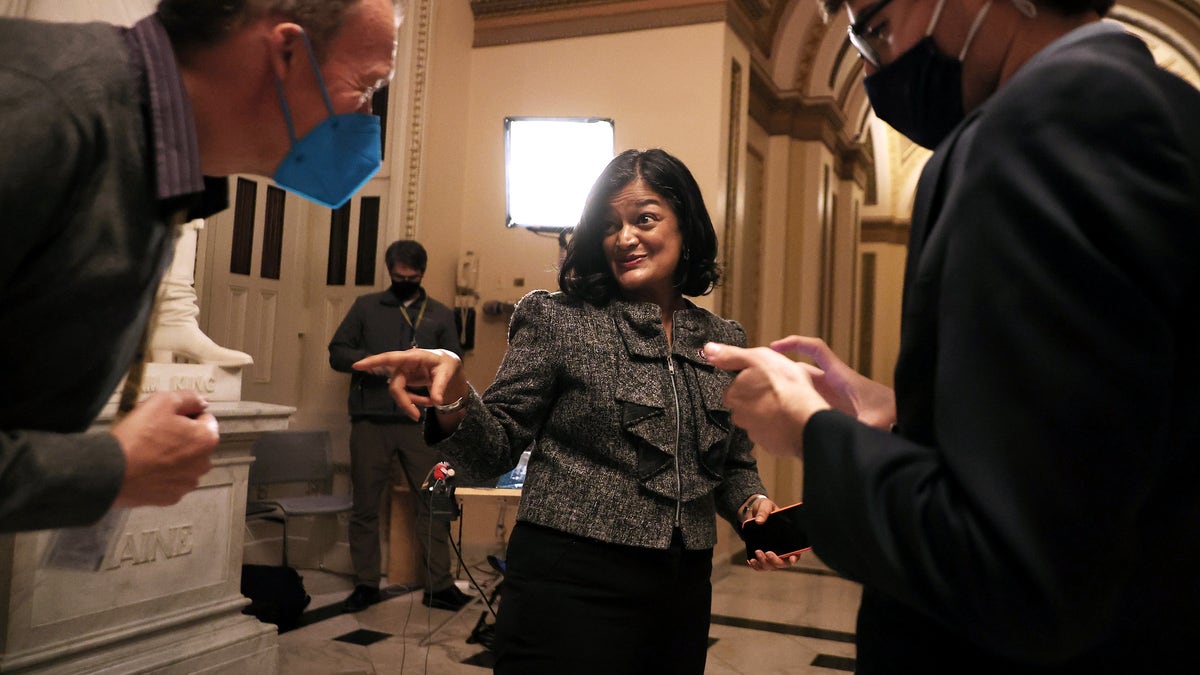
U.S. Rep. Pramila Jayapal, D-Wash. (Getty Images)
Jayapal set aside over $321,000 for the Ballard Locks Ocean Initiative to reinvigorate the endangered Chinook salmon and other salmon species by supporting "further deployment and study of new technology, the Targeted Acoustic Startle Technology (TAST), which deters pinnipeds by eliciting a startle response."
OVERSIGHT REPUBLICAN INTRODUCES BILL TO REFORM ‘INEFFICIENT’ FEDERAL BUREAUCRACY
Michigan
Vulnerable Republican U.S. Rep. Fred Upton of Michigan also gave into the legislative peer pressure, requesting $50,000 for the "Asset, Limited, Income Constrained, and Employed (ALICE) Friendly Workplace Project" through the United Way of Battle Creek and Kalamazoo Region.

U.S. Rep. Fred Upton, R-Mich. (Getty Images)
"The purpose of the ALICE Friendly Workplace Project is to create workplaces for the ALICE population that are empathetic, equitable, and ultimately provide space for individuals to be able to step out of ALICE," Upton’s website reads.
"Part of the project will be the development of an ALICE Friendly Workplace Toolkit that will guide employers to evaluate and change current policies that may be harming their employees," the website continues. "The toolkit will be informed by local data and research about ALICE in the region."
"All funding requests submitted were carefully reviewed within the strict rules of the committee in a fully transparent process," Upton said in a statement to Fox News Digital. "This information was made public nearly a year ago. What's much more compelling is the Ukrainian humanitarian funding in the bill and the sad fact that only 39 GOP supported it."
Oklahoma
Oklahoma has not been free from the siren’s call of earmarks, either, with a veteran congressman not tying himself to the mast of the U.S.’s fiscal ship.
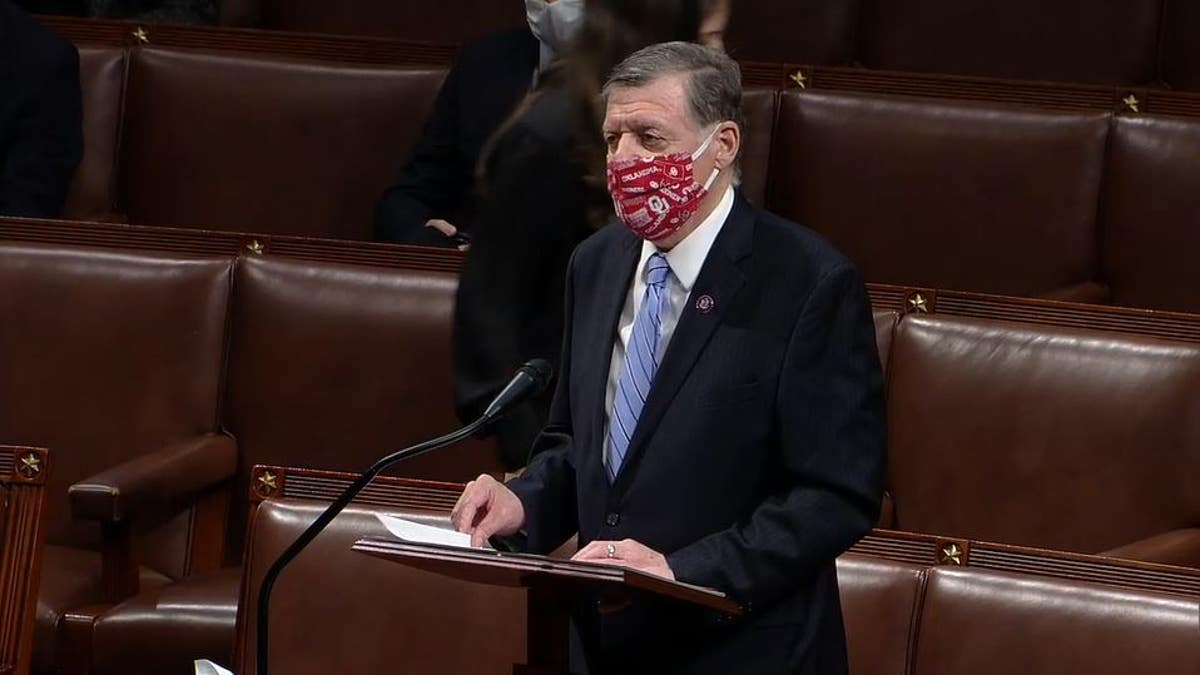
U.S. Rep. Tom Cole, R-Okla.
U.S. Rep. Tom Cole, R-Okla., who has served since earmarks were last implemented by Congress, put in a $406,860 earmark for the Oklahoma Medical Research Foundation to create a Native American and Rural Arthritis Research Center to address the "disparities" of arthritis prevalence of rural-living Native Americans.
"This project is a good use of taxpayer funds because it addresses significant health disparities that exist between America's Native American population and other population groups," the earmark request reads.
Texas
The Lone Star State did not escape earmarks, either, with freshman U.S. Rep. Beth Van Duyne, R-Texas, putting aside $1.35 million to improve traffic flow for a three-point roadway intersection in her district.
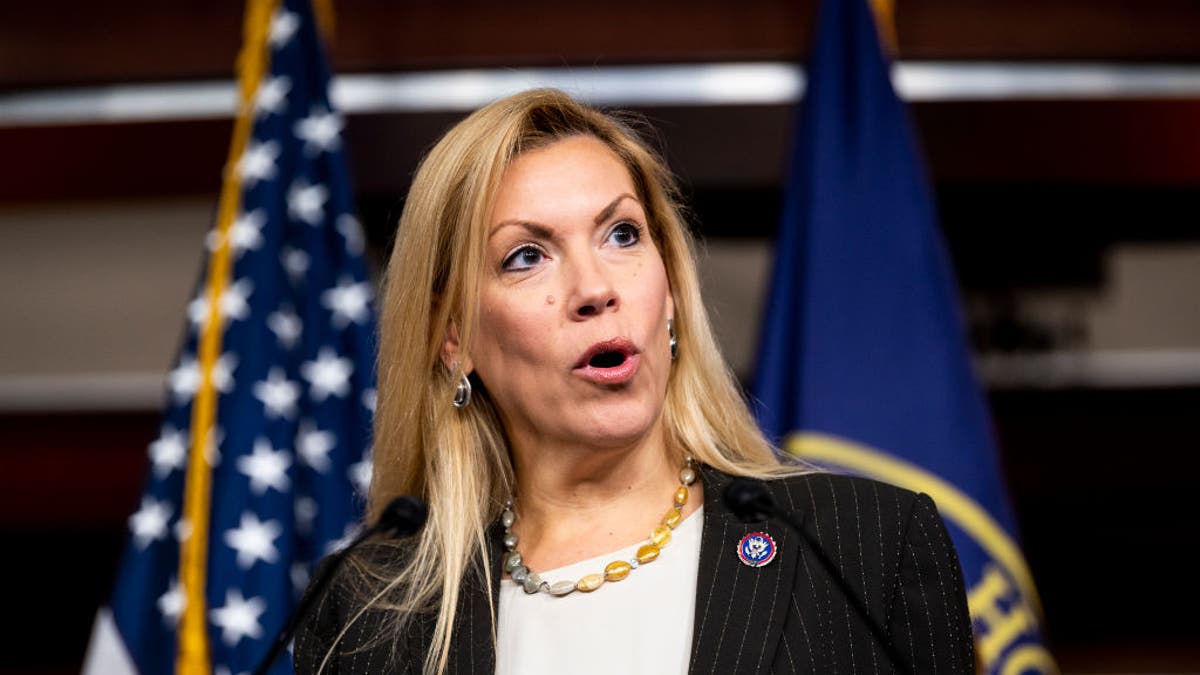
U.S. Rep. Beth Van Duyne, R-Texas
The earmark looks to improve the "mobility" of the intersection in question, which is a suburban roadway triangle next to an elementary school, where there is likely a school zone forcing lower speeds.
Improving roads and infrastructure is an important task — one often covered by the federal government — but $1.35 million is a hefty sum that dwarfs even Senate Majority Leader Chuck Schumer’s $600,000 Empire State greenhouse.
Streamline and simplify?
Proponents of earmarks argue that they streamline and simplify the legislative process – the late U.S. Sen. Bob Dole, R-Kan., used them regularly in deal-making on Capitol Hill — while opponents decry the unfairness of going around the competitive government contract awarding process and playing favorites with firms.
Opponents of the legislative smoke bomb also argue that it is unfair for taxpayer dollars in one state to be freely given to another state for a lawmaker’s pet project.
The White House Office of Management and Budget (OMB), under former President Bush, defined earmarks as "funds provided by the Congress for projects or programs where the congressional direction (in bill or report language) circumvents the merit-based or competitive allocation process, or specifies the location or recipient, or otherwise curtails the ability of the Administration to control critical aspects of the funds allocation process."

U.S. Sen. Bob Dole, R-Kan., who died in December 2021, was a big proponent of earmarks. Dole, the Republican nominee for president in 1996, is seen at a rally during that run. (Getty Images)
This means that earmarks allow the federal government to play favorites with contracts, which often carry paydays in the millions of dollars.
Former OMB Director Russ Vought, who served under former President Trump, told Fox News Digital over the phone that the previous ban against earmarks "is something that is really one of the only fiscal reforms" congressional conservatives can point to as a win in the last decade.
‘Essentially pork factories’
"I think this is the real problem with earmarks, is that earmarks take the attention away from serious policymaking and take senators and member offices and turns them into essentially pork factories where much of their time, much of their limited resources is attempting to do the paperwork and investigate these organizations that they are then going to put their names behind," Vought said.
"And all of that comes at the opportunity tradeoff from doing real policy reforms, being policy entrepreneurs and providing real leadership on the issues of the day," he continued.
U.S. Sen. Rick Scott, R-Fla., chairman of the National Republican Senatorial Conference (NRSC), decried Congress’ reimplementation of earmarks in a statement and blasted the Democrats for using earmarks as a way to win over voters.
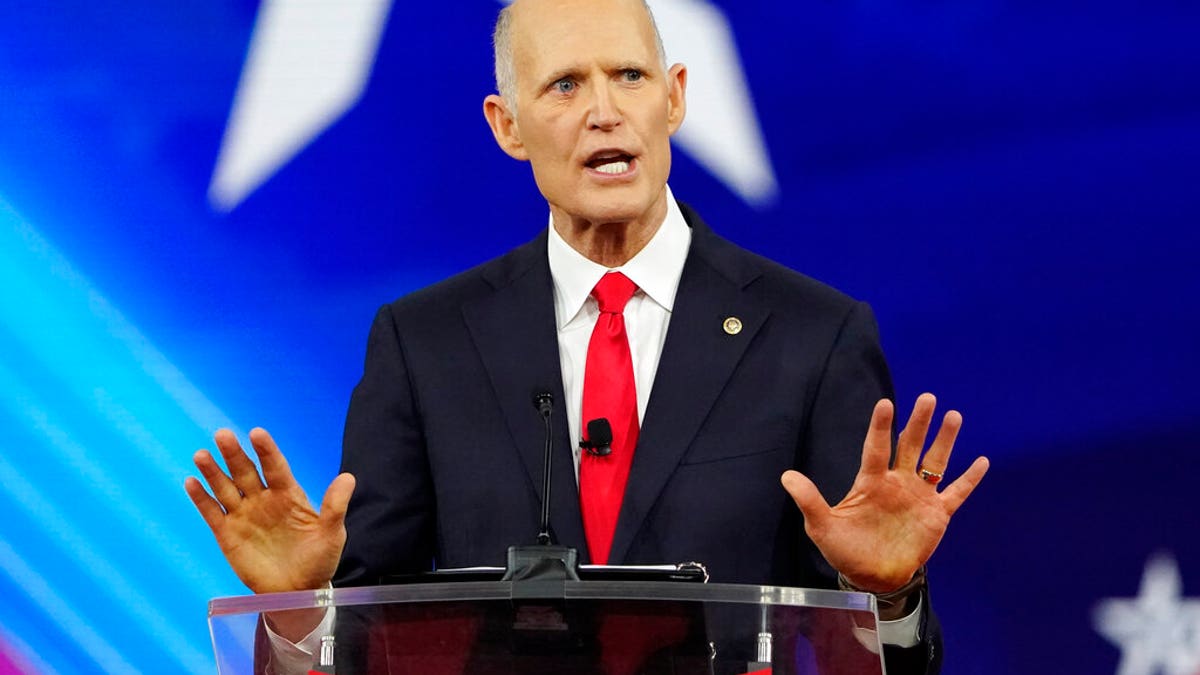
U.S. Sen. Rick Scott, R-Fla. (Associated Press)
"This isn’t free money. It’s taxpayers’ money. And Democrats are trying to use taxpayer money – with no oversight whatsoever – to buy the support of voters who are rejecting their agenda," Scott said in an email. "It makes my blood boil and should infuriate every American to see how broken Washington is."
"This isn’t free money. It’s taxpayers’ money. And Democrats are trying to use taxpayer money … to buy the support of voters who are rejecting their agenda."
"America is more than $30 trillion in debt. Inflation is the highest it’s been in 40 YEARS. Hardworking Americans, and poor families like mine growing up, are struggling more than ever, but Democrats just keep spending," he continued. "Americans are fed up, and in November, voters will let Democrats know exactly how they feel about this reckless spending."
Scott led the Senate Republican conference in standing against earmarks via a symbolic pledge in April 2021, but some GOP senators did not abide by it.
Going against their pledge
Several Senate Republicans went against the pledge and announced they would be including funding earmarks, including U.S. Sens. Lisa Murkowski of Alaska and Bill Cassidy of Louisiana.
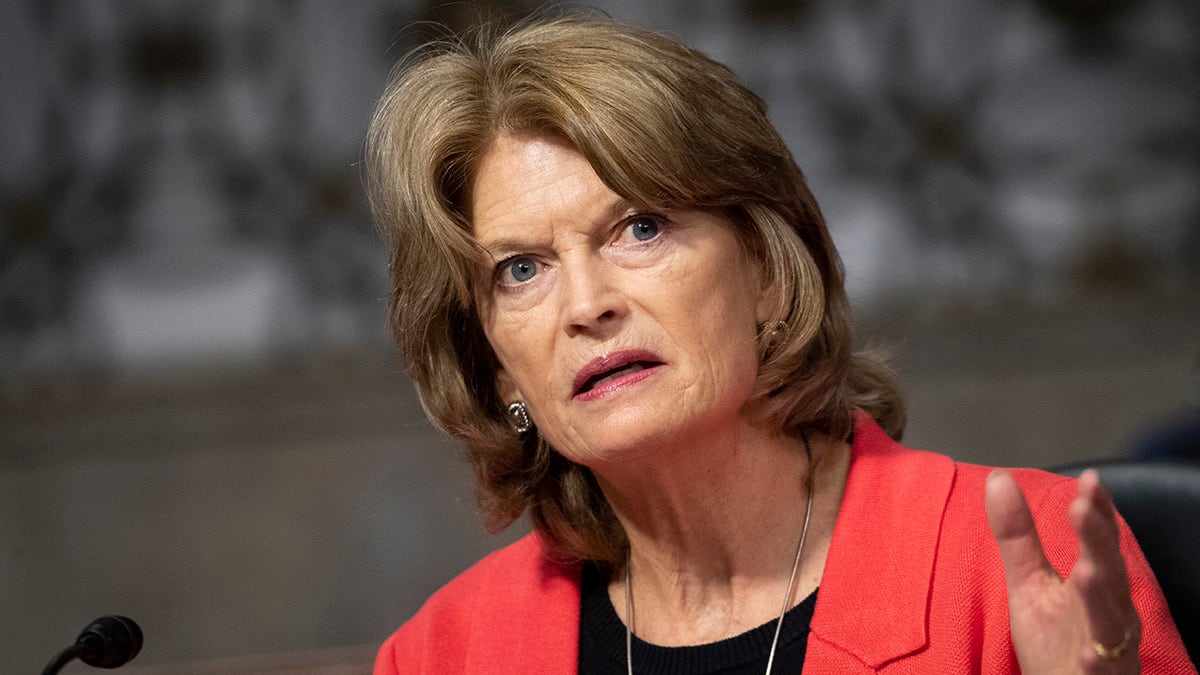
U.S. Sen. Lisa Murkowski, R-Alaska, on the Senate floor in Washington, March 4, 2021. (Getty Images)
Murkowski's office pointed to statements from the senator where she praised the president signing the hefty spending bill into law, declaring it a "big victory for every Alaskan who will benefit as a result of this bill package being signed into law."
"Through consultation with Alaskans, I was able to secure important investments that will spur economic development, improve Alaskans’ quality of life, and make our communities safer—and that’s just scratching the surface. Through the reinstituted Congressionally Directed Spending process, Alaskan taxpayer dollars are returning back to the state in the ways in which communities have prioritized—giving them a greater say in the targeted projects that need our most immediate support," Murkowski said.
"There were also broader initiatives included that will make a significant impact across the state. The Rural MOMS Act will help ensure that new and expecting moms living in rural communities receive the care they need," she continued. "And with reauthorization of VAWA, we are empowering survivors to have access to the support they need, while also creating a safer future for all women."
U.S. Rep. Ralph Norman, R-S.C., is a staunch opponent of earmarks — which he called a "giveaway program." He warned that they are the "cocaine of this generation" of lawmakers in a phone interview with Fox News Digital.
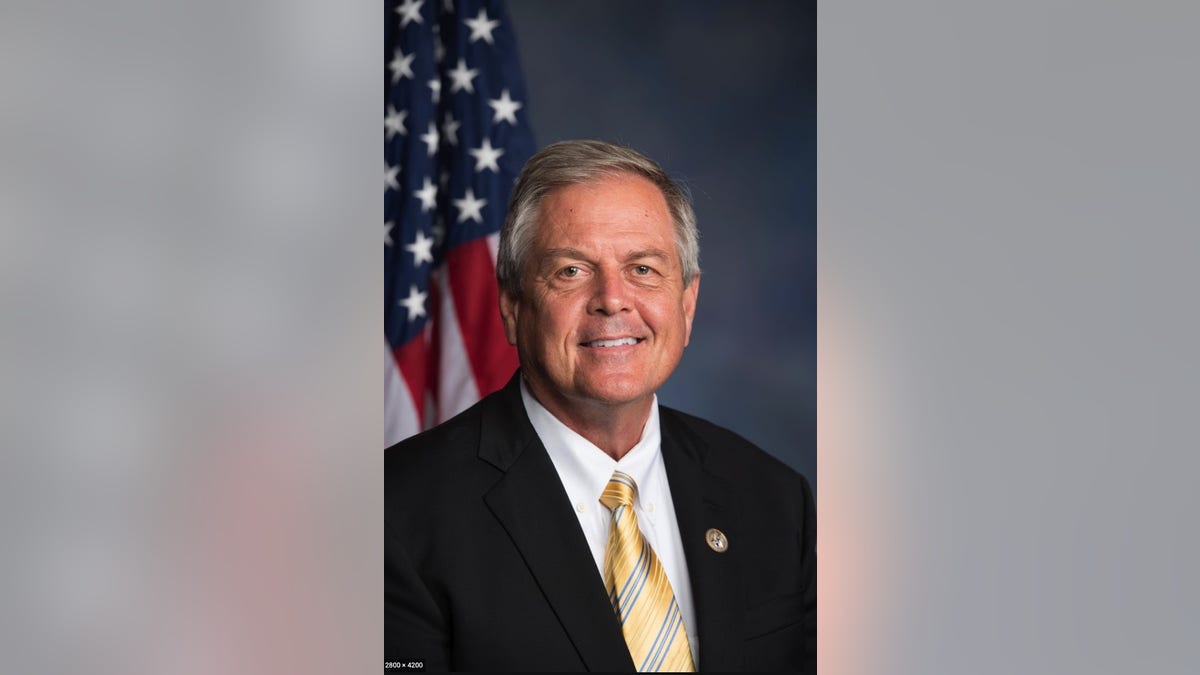
U.S. Rep. Ralph Norman, R-S.C. (Handout)
"I mean, the whole thing is an abomination to this country," Norman said. "To spend $1.5 trillion, which is a 16 percent increase of the total of last year's budget and to go further in debt. You can pick out any number of these earmarks … with no offsets? It continues to amaze me."
"We're on a path that bankrupts this country. And for the Republicans, who are supposed to be the party of conservatism, to do this is completely shocking to me," he continued. "And we don’t know the half of it because nobody has read the thing."
Dems' blame game
U.S. Sen. James Lankford, R-Okla., warned that more federal spending could compound inflation and torched the Democrats for blaming inflation on other factors, including Russian President Vladimir Putin and COVID-19, when other countries aren’t experiencing the price hike.
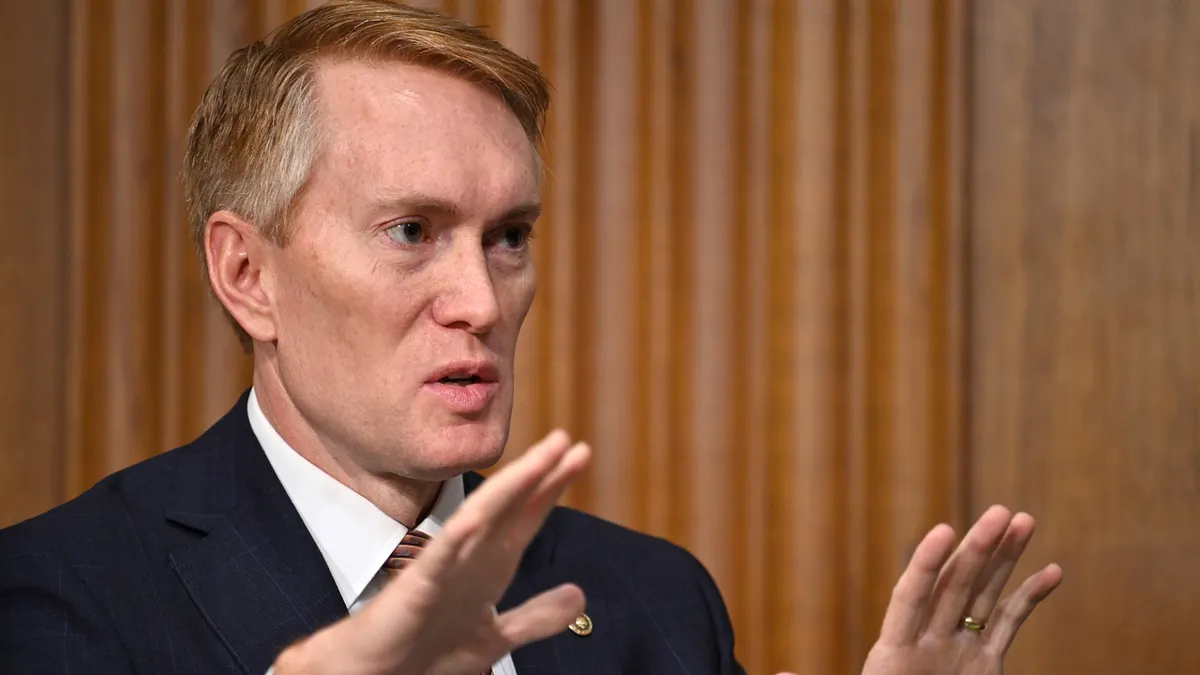
U.S. Sen. James Lankford, R-Okla. (Reuters)
"Federal spending is what actually spurred this inflation that we're experiencing right now," Lankford said. "When Democrats passed their big bill last March, that dropped $2 billion into the economy of federal spending, onto an economy that was already growing, it supercharged our economy and led to the high inflation we have now."
"We've got to stop overspending on the federal government side and to be able to make sure that we're showing a more restrained government so that we can begin to get inflation back under control," Lankford continued. "You can't say you're trying to fight off inflation and you're dumping more federal dollars into the economy at the same time."
"You can't say you're trying to fight off inflation and you're dumping more federal dollars into the economy at the same time."
U.S. Rep. Chip Roy, R-Texas, a vocal fiscal conservative, joined his colleagues in speaking out against earmarks, saying the return of earmarks is "just the swamp doing what it does best."
"I can't overemphasize enough that earmarks are just another tool in the toolbox for a corrupt Washington, which has no intent whatsoever not to balance the budget," Roy said. "It's a lie. All those people who run on balancing the budget, ‘I'm going to pass a balanced budget amendment.’"
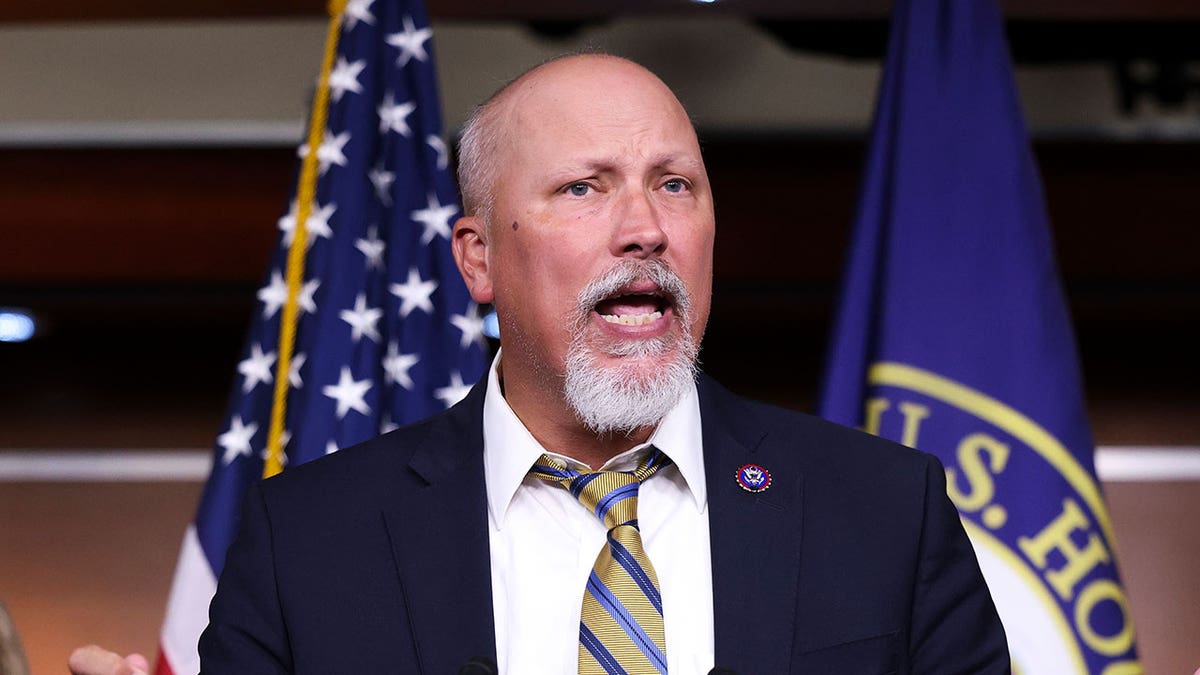
U.S. Rep. Chip Roy, R-Texas (Getty Images)
"It's a lie because they have no intention of doing that whatsoever because it's a lot easier to spend other people's money rack up debt, mortgage our kids' future to then fund the very tyranny they complain about," Roy continued.
Tom Schatz, the president of Citizens Against Government Waste, said earmarks are "corrupt, costly and inequitable."
"Mostly because members of Congress vote for bills like the omnibus that they might not ordinarily support but for the earmarks," Schatz said. "Inequitable, although we have not analyzed exactly who got them this time, the last time there was a list of members of Congress receiving earmarks, 51 percent of the earmarks and 61 percent of the money went to the members of the House and Senate Appropriations Committees, and they only constituted about 15 percent of the entire Congress."
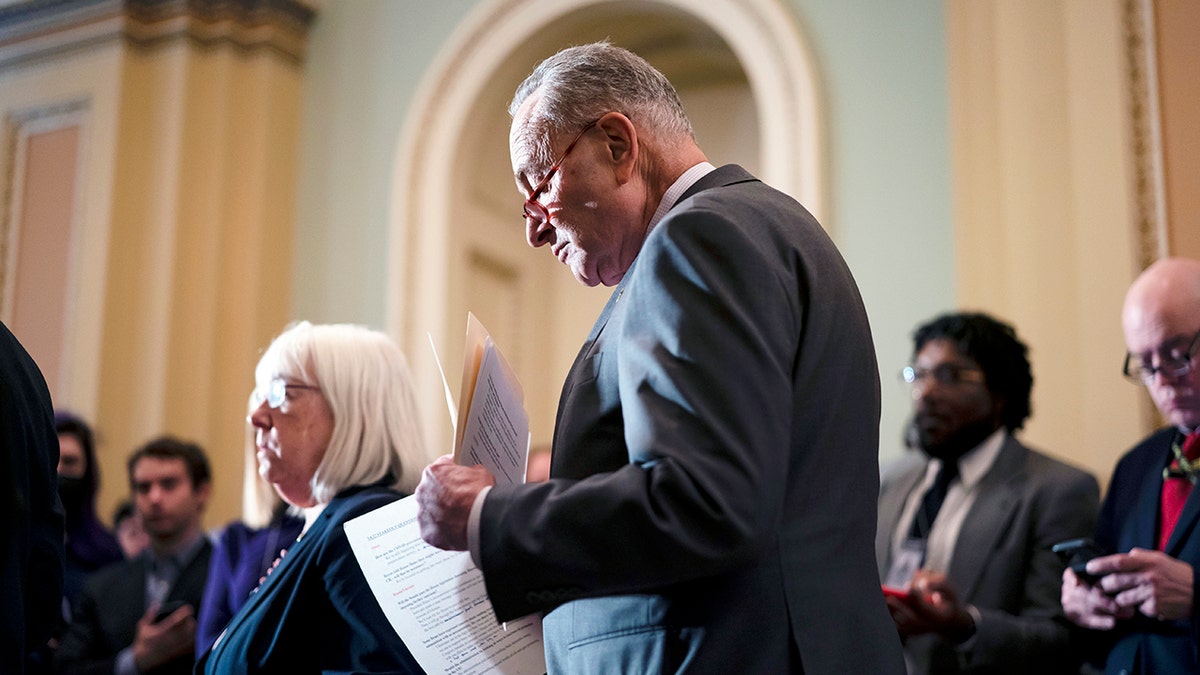
Senate Majority Leader Chuck Schumer, D-N.Y. (Associated Press)
"So inequitable, to say the least," Schatz continued, adding that "earmarks are never fair to the taxpayers" and that earmarks are only "fair" to the "locals," meaning lawmakers.
The earmark Renaissance that has Congress reverting to the old guards’ ways could cause inflation and the prices of goods and services to rise further than they already have.
Several lawmakers have torched their Democratic colleagues for giving them the full, almost-3,000-paged bill to them less than 24 hours before they voted on the measure.
CLICK HERE TO GET THE FOX NEWS APP
This type of timeline on large funding bills is, unfortunately, a typical fixture on Capitol Hill, and leads to situations like we are in now where lawmakers don’t fully know what was passed in a large funding bill until after it becomes law.
Meanwhile, as the government continues to spend more as the debt count rises, Americans are having a harder time affording basic necessities like gas and food.
Fox News Digital's Tyler Olson, Cameron Cawthorne and Marisa Schultz contributed reporting.














































